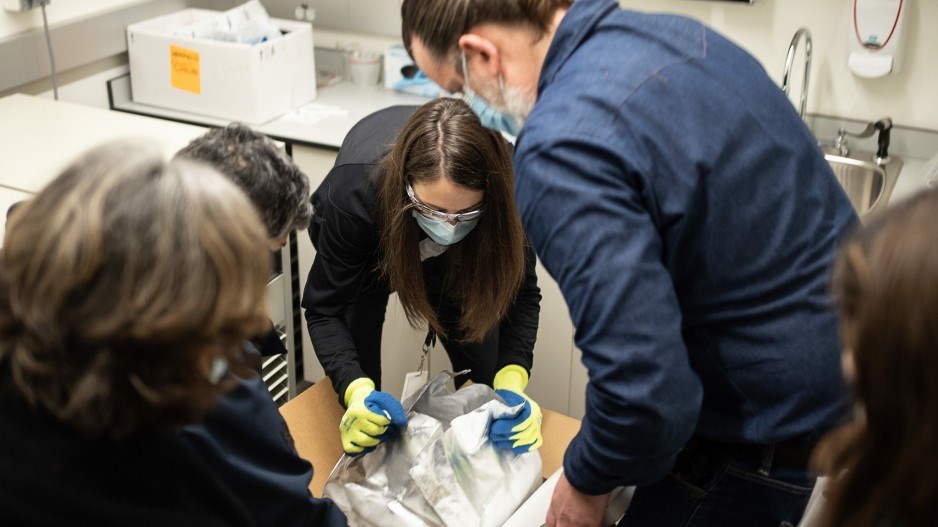Ottawa has inked a deal with Pfizer Inc. for tens of millions of booster doses of the pharmaceutical giant’s COVID-19 vaccine over the coming years.
Prime Minister Justin Trudeau revealed Friday that Canada has ordered 35 million booster doses for 2022, followed by an additional 30 million doses in 2023.
“There is certainly a hope booster shots might not be necessary but we are much better off to ensure that we are prepared in case they are [necessary] than not prepared,” he said.
The prime minister, who is set to receive his first dose of the AstraZeneca plc vaccine later in the day, said the deal includes the option of adding up to 30 million more booster doses for 2022-23.
The country also has another option for 60 million booster doses for 2024.
The Pfizer, AstraZeneca and Moderna Inc. vaccines all require two doses for maximum efficacy.
But CNBC reported last week that Pfizer CEO Albert Bourla said booster shots would “likely” be needed within 12 months after recipients are fully vaccinated.
Public Services and Procurement Minister Anita Anand said the booster shots would provide new vaccine formulations to protect against variants of concern as well as vaccines developed for younger populations.
Of the vaccines approved in Canada, the AstraZeneca and Moderna vaccines are approved only for those 18+, while the Pfizer vaccine has been given the green light to be used on those 16+.
Meanwhile, new modelling released this week from Simon Fraser University mathematicians predicts the province’s vaccination plan will only be able to protect 51% of B.C.’s population.
This is based on forecasts of 80% of eligible recipients getting vaccinated, leaving 860,000 adults unvaccinated as well as all children in the province (eligibility currently applies to those 18+).
The modelling concludes herd immunity won’t be achieved on that basis and suggests the province consider expanding immunization to children.
The prime minister also addressed new travel restrictions imposed late Thursday on India and Pakistan, whereby passenger flights have been suspended for 30 days.
Those taking indirect routes will need to obtain a COVID-19 pre-departure test from the last country they travelled through before arriving in Canada, and will be required to quarantine in government-approved hotels.
“Those who don’t respect [arrival requirements] will face severe consequences,” Trudeau said.
Public Safety Minister Bill Blair said during the same briefing that most travellers on these flights are Canadians who wish to return home and the government has a duty to facilitate their arrivals.



